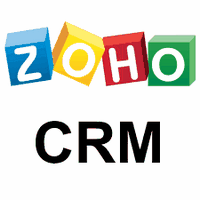 A good CRM implementation requires a lot of planning. To put it into perspective, if you try to create a spreadsheet and fail to get the results you anticipated you can easily delete a formula or even the entire spreadsheet. However, with CRM it might not be as easy to identify the problem area(s). You might have many CRM users whose work might suffer because of incorrect data or who might not be able to access any data at all.
A good CRM implementation requires a lot of planning. To put it into perspective, if you try to create a spreadsheet and fail to get the results you anticipated you can easily delete a formula or even the entire spreadsheet. However, with CRM it might not be as easy to identify the problem area(s). You might have many CRM users whose work might suffer because of incorrect data or who might not be able to access any data at all.
Over the course of the last several years I’ve accomplished well over 100 migrations from one CRM platform to another. I’ve seen the good, the bad and sometimes the plain ugly of what can go wrong. Here are 10 of my observations and ways you can improve your CRM implementation:
1. Lack of Clear Goals
The first thing I always ask of a new client is to present me with a list of what they are hoping to accomplish with their CRM. In some cases the goal is simply to store contact information, add some notes and schedule activities. However, in other cases users have some very specific goals and “assume” that they will work with the new CRM. For example, users often “assume” that they CRM will work with their existing phone system or with their accounting system.
2. Insufficient Planning
Most companies have a “peak” season; scheduling a CRM implementation too near to that time will lead to a lot of chaos and, ultimately, a less than favorable result. I recently did an implementation for a large company. Unfortunately they failed to tell me that they had hired 15 new employees on the deployment data so the Training Manager was not available to explain the new CRM system to employees. In addition, a new phone system was being installed so the IT Manager was also unavailable to help.
3. Poor Data Quality
As the saying goes: Garbage In, Garbage Out. I have yet to encounter a CRM database that contained perfect data. Some duplicates are unavoidable. Contacts can be outdated or missing key information. Migrating to another CRM system is NOT going to make all those issues disappear. The data should be cleaned up PRIOR to the CRM implementation.
4. Lack of User Involvement
I cringe every time the “It Person” is placed in charge of a CRM conversion. Management often makes that decision based on the fact that the IT Person “understands” technology. Unfortunately, the IT Person often lacks proper knowledge of the various business processes. The users who will be using the system day in and day out generally have a better understanding of the way a company works and need to be a part of the implementation process.
5. Insufficient Training
Learning by “trial and error” can lead to disastrous results. If you talk to a CRM salesperson they will try to convince you as to the “simplicity” of their CRM product. However, if you talk to a CRM Consultant they will tell you that their mastery of the product took many years and is still supplemented with additional training.
6. Over-Customization
A little knowledge is a dangerous thing. Typically, users request the addition of dozens of “customized” fields, often overlooking the fact that similar fields already exist in the database. This can lead to user confusion. Typically I find that many of the new fields are rarely if ever used.
7. Poor Integration with Existing Systems
Double-entry is a waste of time and can often lead to conflicting or incorrect data. Ideally, you want to integrate your various data sources. If an integration is required it needs to be correctly mapped PRIOR to your CRM implementation.
8. Lack of Ongoing Support
I recently finished a rather complex Act to Zoho migration. Everything worked perfectly and the client was happy – until one of the employees decided to “tweak” the database. This results in a tremendous loss of data because the employee deleted a crucial field. Ironically, the employee could have reached out to me prior to making these critical changes and avoided a disaster.
9. Ignoring Change Management
Develop a change management plan to handle process and role changes during CRM implementation.
10. Lack of Measurement and Continuous Improvement A good CRM implementation should ultimately make your business more efficient and profitable. A CRM’s success can be measured by multiple factors including increased sales, better identification of key customers and more effective outbound marketing. If you are not seeing an upturn in productivity you need to determine the cause and make the appropriate changes.
A good CRM implementation should ultimately make your business more efficient and profitable. A CRM’s success can be measured by multiple factors including increased sales, better identification of key customers and more effective outbound marketing. If you are not seeing an upturn in productivity you need to determine the cause and make the appropriate changes.
Need help with your Act or Zoho Implementation? We can help! Give us a call at 561-470-5450. Our Act consultants and Zoho Consultants are here to help!



